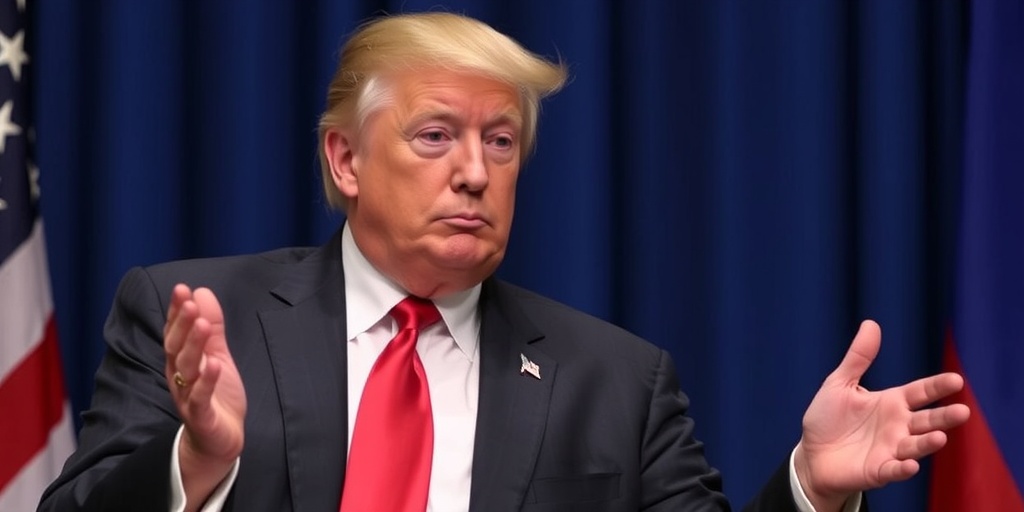Now Reading: Senators Question Dr. Oz on Medicaid Cuts and Medicare Reforms
-
01
Senators Question Dr. Oz on Medicaid Cuts and Medicare Reforms
Senators Question Dr. Oz on Medicaid Cuts and Medicare Reforms
In a confirmation hearing held on Friday, Dr. Mehmet Oz, the well-known television personality nominated to lead Medicare and Medicaid, faced scrutiny from senators regarding Republican-backed proposals likely to reshape healthcare coverage for nearly half of the U.S. population. Appearing before the Senate Finance Committee, Dr. Oz maintained a lighthearted atmosphere, using humor about sports teams to deflect some of the more pressing questions from both Democratic and Republican senators. Despite the intense political backdrop of ongoing discussions about a government shutdown, Dr. Oz appeared to be on track for a smooth confirmation as the Administrator of the Centers for Medicare and Medicaid Services (CMS), an agency responsible for approximately $1.5 trillion in spending annually.
Senator Elizabeth Warren, a Democrat from Massachusetts, had publicly called attention to Dr. Oz’s financial conflicts prior to the hearing. However, during the session, she refrained from probing deeper into these conflicts. Instead, Warren focused on the issue of potential overcharging by private Medicare plans—an area where both she and Dr. Oz found common ground, expressing a shared interest in addressing issues of fraud and waste in the Medicare system.
During the hearing, Dr. Oz showcased a strong understanding of various relevant issues pertaining to the agency, although he often reverted to generalized responses, indicating that further study was required on complex matters. Several Democratic lawmakers attempted to push Dr. Oz to clarify his positions on the Trump administration’s goals to reduce healthcare costs and adjust agency budgets, but he consistently sidestepped these contentious topics. He emphasized the importance of health, stating that “it is our patriotic duty to be healthy” and noting the high expenses associated with treating individuals whose health issues stem from lifestyle choices. This sentiment aligns closely with the “Make America Healthy Again” initiative promoted by Robert F. Kennedy Jr., who recently took over as Secretary of the Department of Health and Human Services and would be Dr. Oz’s supervisor if confirmed.
Senator Ron Wyden from Oregon opened the hearing with pointed remarks that hinted at challenging questions for Dr. Oz. Wyden accused him of evading nearly $500,000 in Social Security and Medicare taxes through tax exemptions associated with limited partnerships, a claim drawn from a review of Dr. Oz’s tax returns. However, the senator opted not to follow up on this notable accusation during the hearing.
Wyden also expressed his intentions to question Dr. Oz about his connections to TZ Insurance Solutions, a for-profit company that markets Medicare Advantage plans to seniors. Dr. Oz has actively promoted these private plans, which have faced criticism for systemic overbilling and denying care, both on his television show and YouTube channel. Additionally, Dr. Oz is a licensed broker for TZ Insurance in several states, as revealed by a recent New York Times investigation into his financial dealings, but Wyden did not pursue this point further either.
Despite opposition from Democratic senators concerned about the potential rollback of safeguards for Medicare Advantage plans, Dr. Oz assured lawmakers of his commitment to robust oversight. He acknowledged that some brokers were “churning policies,” shifting beneficiaries between plans without regard for their best interests. “Part of this is just recognizing there’s a new sheriff in town,” he stated, indicating a proactive approach to ensuring accountability in how American taxpayer money is used.
Throughout the hearing, a theme emerged concerning bipartisan concerns over the possibility of overpaying for Medicare Advantage plans. When questioned by Republican Senator Bill Cassidy of Louisiana, Dr. Oz cited a study suggesting that federal spending on private Medicare options exceeds that of the traditional government-run program, later suggesting that some of that excess funding should be returned to the American public. He also emphasized the need to streamline prior authorization processes to alleviate administrative burdens for patients requiring medical procedures.
Democratic senators expressed frustration over Dr. Oz’s vague responses regarding Medicaid, the program that provides coverage for 72 million low-income Americans. When Senator Maria Cantwell from Washington directly inquired if he would endorse cuts to Medicaid, Dr. Oz avoided a clear answer, stating that he lacked detailed knowledge of the Republican budget discussions that might lead to significant reductions in funding.
In discussions with Senator Raphael Warnock from Georgia, Dr. Oz indicated some support for the work requirements that Republicans propose in order to limit Medicaid eligibility, even as he reassured that those deserving of Medicaid should not lose their access to benefits.
Concerning his extensive financial background in promoting dietary supplements—many of which could potentially influence decisions he would make in his CMS role—Senator Maggie Hassan from New Hampshire attempted to gauge the scale of Dr. Oz’s earnings from such promotions. Though he insisted he had not been directly compensated, he was unable to provide specific figures, leading Hassan to pivot the inquiry, ultimately securing little substantial information.
In addressing other pressing issues, Senator Wyden raised concerns about the unauthorized access Elon Musk’s so-called Department of Government Efficiency might have to private medical information. Despite the gravity of these implications, Dr. Oz claimed he had not engaged in any discussions regarding Musk’s inspections of agency data, vowing, nonetheless, to “address what is going on.”
Dr. Oz also answered questions regarding the recent measles outbreak in Texas and New Mexico, stating he believes in the safety of vaccines but avoided commenting directly on their effectiveness by deferring to the expertise of the Centers for Disease Control and Prevention (CDC). He stated, “My job, if confirmed, is to make sure we pay for those vaccines,” reinforcing his anticipated role within the agency if confirmed.
Stay Informed With the Latest & Most Important News
Previous Post
Next Post
-
 01New technology breakthrough has everyone talking right now
01New technology breakthrough has everyone talking right now -
 02Unbelievable life hack everyone needs to try today
02Unbelievable life hack everyone needs to try today -
 03Fascinating discovery found buried deep beneath the ocean
03Fascinating discovery found buried deep beneath the ocean -
 04Man invents genius device that solves everyday problems
04Man invents genius device that solves everyday problems -
 05Shocking discovery that changes what we know forever
05Shocking discovery that changes what we know forever -
 06Internet goes wild over celebrity’s unexpected fashion choice
06Internet goes wild over celebrity’s unexpected fashion choice -
 07Rare animal sighting stuns scientists and wildlife lovers
07Rare animal sighting stuns scientists and wildlife lovers



















